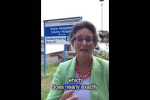Tory MPs back ditching GCSE exams in English school system overhaul
First published on the Guardian website: https://www.theguardian.com/education/2020/oct/08/tory-mps-back-ditchin…
Covid-19 crisis has allowed for a radical rethink of education system, says One Nation group
The disruption caused by the coronavirus allows for a “radical” rethink of England’s school system, according to a group of Conservative MPs who advocate scrapping GCSEs, delaying the start of formal education and introducing longer school days.
A paper from the One Nation caucus of centrist Conservative MPs is the latest assault on GCSEs, arguing that England is unusual in making teenagers sit two sets of high-stakes exams within the space of three years, and that this is partly responsible for high levels of stress and unhappiness among pupils.
Flick Drummond, the MP for Meon Valley and one of the authors of the report, said: “It seemed to us that the Covid outbreak was a good opportunity to take another look at the education system and see what we could do differently, and do something radical.”
Drummond said that sitting GCSEs at the age of 16 no longer made sense. “Now that children stay at school until the age of 18, why on earth should they take these exams at 16?”
The paper argues that preparation for GCSE exams means that pupils miss a large chunk of valuable learning because of the time taken up with mock exams and revision, followed by the exams themselves. “That’s almost six months out of a whole year spent preparing for exams,” said Drummond.
She said she was particularly concerned by the impact of exams on mental health, citing a report backed by the Children’s Society in August that ranked England 36th out of 45 countries in Europe and North America for wellbeing.
Instead, the new report says, the exams should be replaced by a baccalaureate, which would cover several years’ study and would allow children more time from the age of 15 to settle on the subjects they wanted to study in the sixth form for A-levels or vocational qualifications such as T-levels and apprenticeships, and to explore potential careers in a structured way.
GCSEs have also come under attack from a coalition of state and independent school leaders, who are launching a group called Rethinking Assessments to campaign for alternatives.
The One Nation group is said to be supported by about 100 Conservative MPs, more than a third of the parliamentary party, and is chaired by the former Cabinet Office minister Damien Green.
Drummond said she wanted to bring the issues in the paper to the attention of her colleagues in government. “I’m hoping that it will be taken seriously and discussed. Particularly in the light of Covid, we’ve got an opportunity to look at other countries and ask if what we are doing is working for us and for young people.”
Drummond also says that the school timetable should be revisited to bring it into line with modern life, including a change to the way holidays are distributed, and lengthening the school day to 5pm to allow children to do more extracurricular activities or receive further support.
“It could mean that disadvantaged children could get more of the same enrichment opportunities as those from better-off homes. Often now schools finish at 3pm or 3.30pm and then what can they do?” Drummond said.
The report’s other recommendations include a delay in the age for compulsory schooling, to age six, which is more in line with other European countries.
In the paper’s section on early years education, Cherilyn Mackrory, the MP for Truro and Falmouth, says there should be targeted help for families with young children. The paper also says that because many children are not “school-ready” at age four, when reception classes open, delaying the start of formal schooling would be appropriate.
